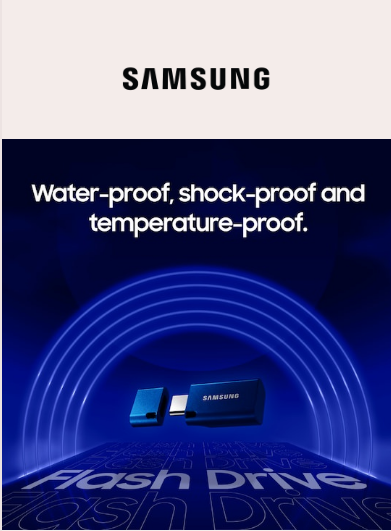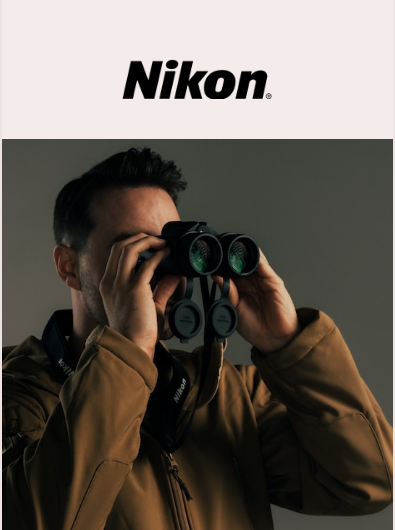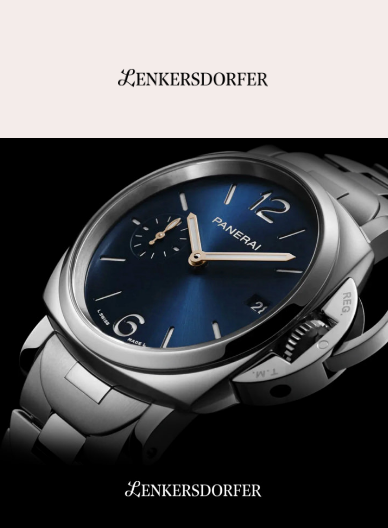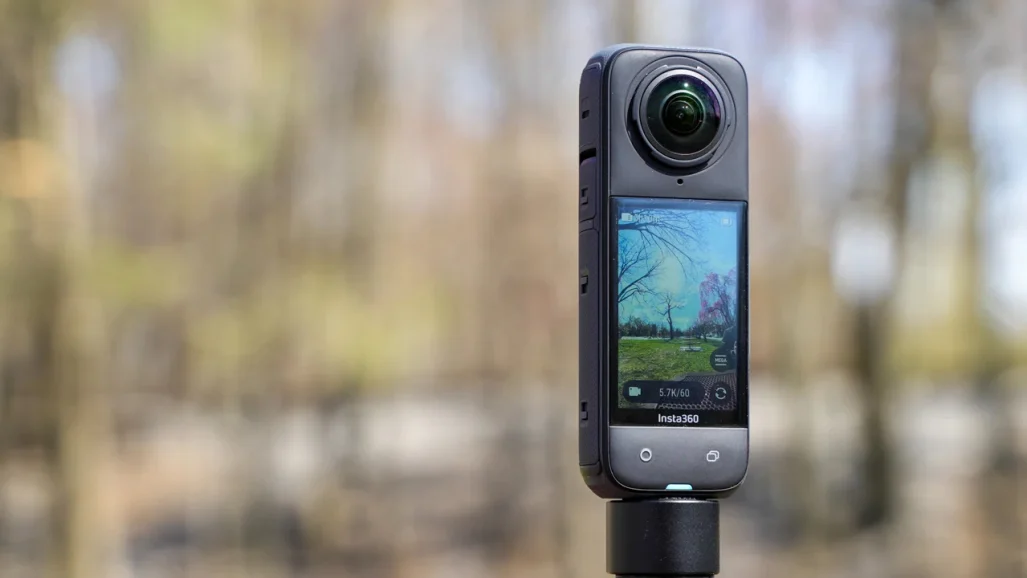
Most action cameras use just one lens to record video, but 360-degree cameras use a matched pair to capture literally everything around them. These types of recordings can give viewers a sense of space when they view it in a VR headset, while creators can crop, zoom, and pan through footage in the editing room to get shots and camera moves that simply aren’t possible with a regular video camera. The best models, like the Editors' Choice-winning Insta360 X4, even have an app to reframe footage. Meanwhile, real estate photographers might find Ricoh Theta cameras a good fit since they can create virtual tours of properties via a companion app. Whatever your needs, make sure to check out all of our picks below for 360-degree video and photography, along with some buying advice for the category.
Before you buy a 360-degree camera for video, think about how you plan to use it. If you're an adventurer, for example, you need a waterproof, mountable model with support for fast frame rates like the Insta360 X4 or GoPro Max. Vloggers may prefer a convertible option that goes between dual and single-lens capture; the Insta360 One RS is a good pick there. Creators who make content for headsets, cinema, or commercials will want to consider a studio-grade camera like the Insta360 Pro 2 ($4,999) or Titan ($15,278) instead, but both require expertise to use.
To get the best footage, look for a camera with at least 5K resolution and software that helps you edit for 16:9 displays. The latter typically runs on mobile devices and lets you pan across or cut video captures to direct your viewer's attention. GoPro and Insta360 cameras both include phone and desktop apps to reframe video.
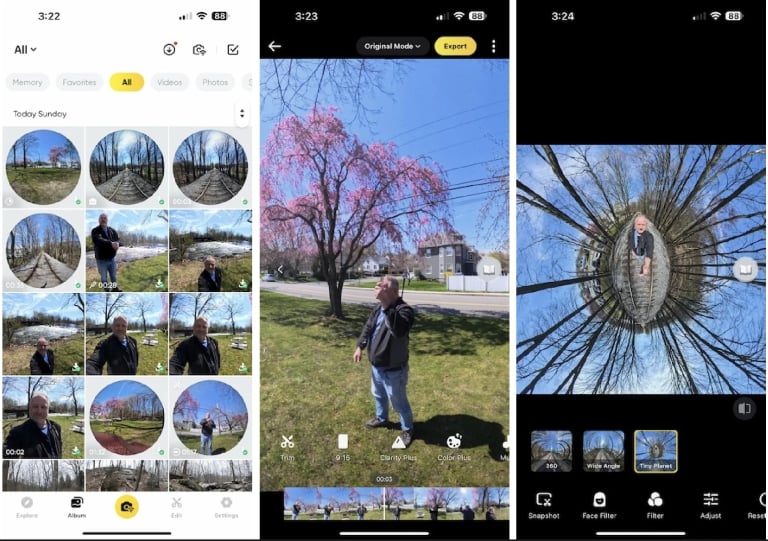
Although you can snap stills with made-for-video 360 cameras, a few models work well specifically for photography.
Cameras in Ricoh's Theta family, for instance, can stand up by themselves or attach to a tripod, which makes them a versatile choice for interior and environmental shots. Realtors can use them to help craft virtual tours, too—photos transfer easily to a smartphone and Ricoh's Virtual Tour software enables simple sharing.
Specialists should also look at Matterport's MC250 Pro2. It can create 360-degree scans of environments, useful for building virtual worlds, constructing 3D models, and presenting real estate properties. Matterport also sells the outdoor-ready Pro3 for around $6,000.
Regardless of how you intend to use your 360-degree recordings, it's important to look at these cameras as just another tool in your kit. They are certainly not the best option for every shot, or even for every project. Check out our roundups of the best action cams, drones, and full-frame cameras for buying advice on those other categories.


